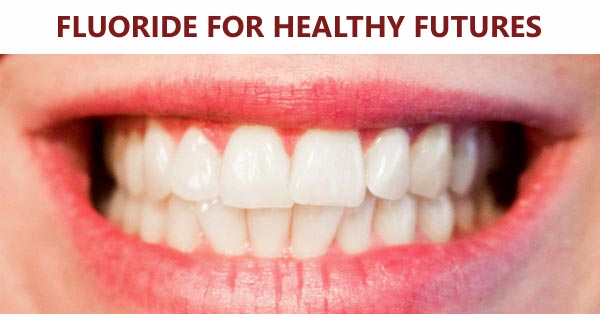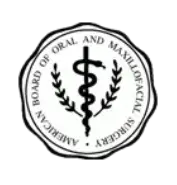Consider the Evidence: Fluoride For Healthy Futures
By: Mirissa D. Price, Huffington Contributor
[OPINION]: Fluoride represents a major step toward not just treatment, but also prevention in oral health. Fluoride for healthy futures! The Oral Surgery DC Team
On February 1, 2016, in the late hours of the night, my jaw fell to the floor. I just couldn't believe what I was seeing:
And I truly hoped that none of the viewers would believe what they were seeing, either. Because it wasn't based on evidence - not the kind prefaced by the word 'science.'
And though a year has gone by since this Dr. Oz episode aired, I just couldn't let the date pass without a call to action. To all readers, to all viewers, to you Ms. Brockovich, and you Dr. Oz, I don't ask that you change your mind. Not necessarily. But I do ask that you read this statement drafted with a number of my HSDM 2019 DMD Candidate colleagues, and consider the evidence - the scientific evidence. Because, as a 2019 DMD Candidate at Harvard School of Dental Medicine and a future pediatric dentist, I care about your health today and in the future; I care about our communities' health, and the health of our children, and I care that we make the right choices for everyone today. So, for just a moment, consider . . .
Harvard School of Dental Medicine practices dentistry under a philosophy of evidence-based medicine, providing patients with an up-to-date and research-based quality of care. Unfortunately, the antifluoridation segment on the Dr. Oz show on February 1, 2016, left much to be wanted regarding evidence-based care. In a one-sided depiction of Erin Brockovich s anti-fluoridation rhetoric, this episode gravely misrepresented the strong foundation of research in support of community water fluoridation. In doing so, this episode not only threatened a public health measure supported by over one hundred health organizations, including the American Association of Public Health Dentistry and American Dental Association, but threatened the oral health and wellbeing of the most vulnerable communities in our nation.
Community water fluoridation took root in Grand Rapids, Michigan, in 1945. Soon, with a capacity to flow beyond the barriers to care dividing our society, community water fluoridation flourished as one of the greatest public health achievements of the twentieth century. Though only 37% of adults will actually visit a dentist in a given year, as of 2012, 200 million people in the United States received service from fluoridated water systems. These 200 million individuals thus had access to not only the remineralizing benefits of fluoride at the tooth surface and corresponding reduction in dental caries, but the associated increase in life satisfaction, employment success, and social confidence.
Unfortunately, Erin Brockovich, an environmental activist, misrepresented the impact of fluoride. She alluded to health risks of fluoride toxicity, citing the decreasing fluoride concentration in water from 1.2 to 0.7 mg/L as evidence of her claims. She further instilled fear in products vital to sustained oral health, including fluoridated toothpaste and natural foods. However, Ms. Brockovich failed to mention that the established safe fluoride levels are less than one-half the Maximum Concentration Limit, and all created within standards of the American Water Works Association and NSF International. Further, she fell short in factually supporting her claims of grandeur, misrepresenting the prevalence of dental fluorosis when this condition, in severe state, only presents in fewer than 1% of the population. The evidence in favor of fluoride is of such strength that even pediatricians are seeking to provide topical fluoride application in the pediatric medical home.
Fluoride represents a major step towards not just treatment but prevention in oral health. The use of fluoridated toothpaste and community water fluoridation has reduced the prevalence of dental caries from 90 to 30% among those age 12-17 years since the 1960s. Caries in adults have also seen significant decline since the introduction of community water fluoridation from 18 affected teeth on average among 35-44 year old adults in the 1960s to 10 affected teeth on average among 35-49 year olds in 1999-2004. As Americans are living longer, so, too, must our teeth, and scientific evidence overwhelmingly concurs that community water fluoridation is a vital component to sustaining our oral health and quality of life.
Thus, with respect for all voices and concern, the dental-medical community asks that the Dr. Oz Show and its viewers consider the scientific evidence in support of community water fluoridation as a strong and guiding voice of its own. Our choices today regarding community water fluoridation most certainly will affect the oral health and quality of life for our children tomorrow.

This statement was drafted as a collaboration of 2019 DMD Candidates at Harvard School of Dental Medicine as part of the Global and Public Health Curriculum, and does not represent an official response statement of HSDM.
Specific contribution is attributed to Jacquelyn Chou, 2019 DMD Candidate Harvard School of Dental Medicine; Justin Montenegro, 2019 DMD Candidate, Harvard School of Dental Medicine; Deepti Shroff, 2019 DMD Candidate, Harvard School of Dental Medicine; Edirin Sido, 2019 DMD Candidate, Harvard School of Dental Medicine; Mirissa D. Price, 2019 DMD Candidate, Harvard School of Dental Medicine; and additional 2019 DMD Candidates at Harvard School of Dental Medicine.
The doctor said she would live in a nursing home, confined to a wheelchair, crippled by pain; that was thirteen years ago. Instead, Mirissa D. Price is a 2019 DMD candidate at Harvard School of Dental Medicine, spreading pain-free smiles, writing through her nights, and, once again, walking through her days.
Article from: http://buff.ly/2vjiBiK
We Pride Ourselves on Five-Star Customer Service






4.9 Stars
based on 134 reviews
5 Stars
based on 11 reviews
5 Stars
based on 11 ratings